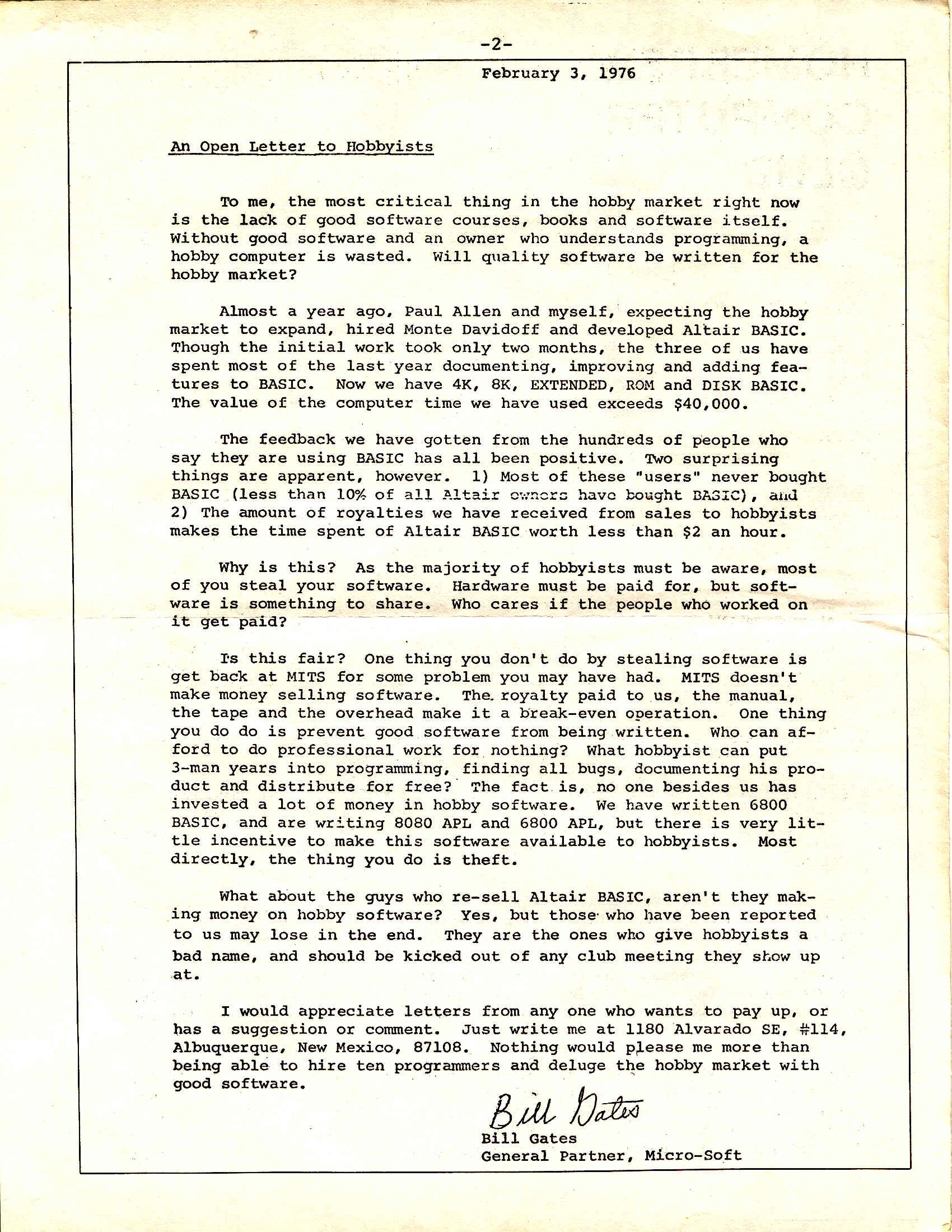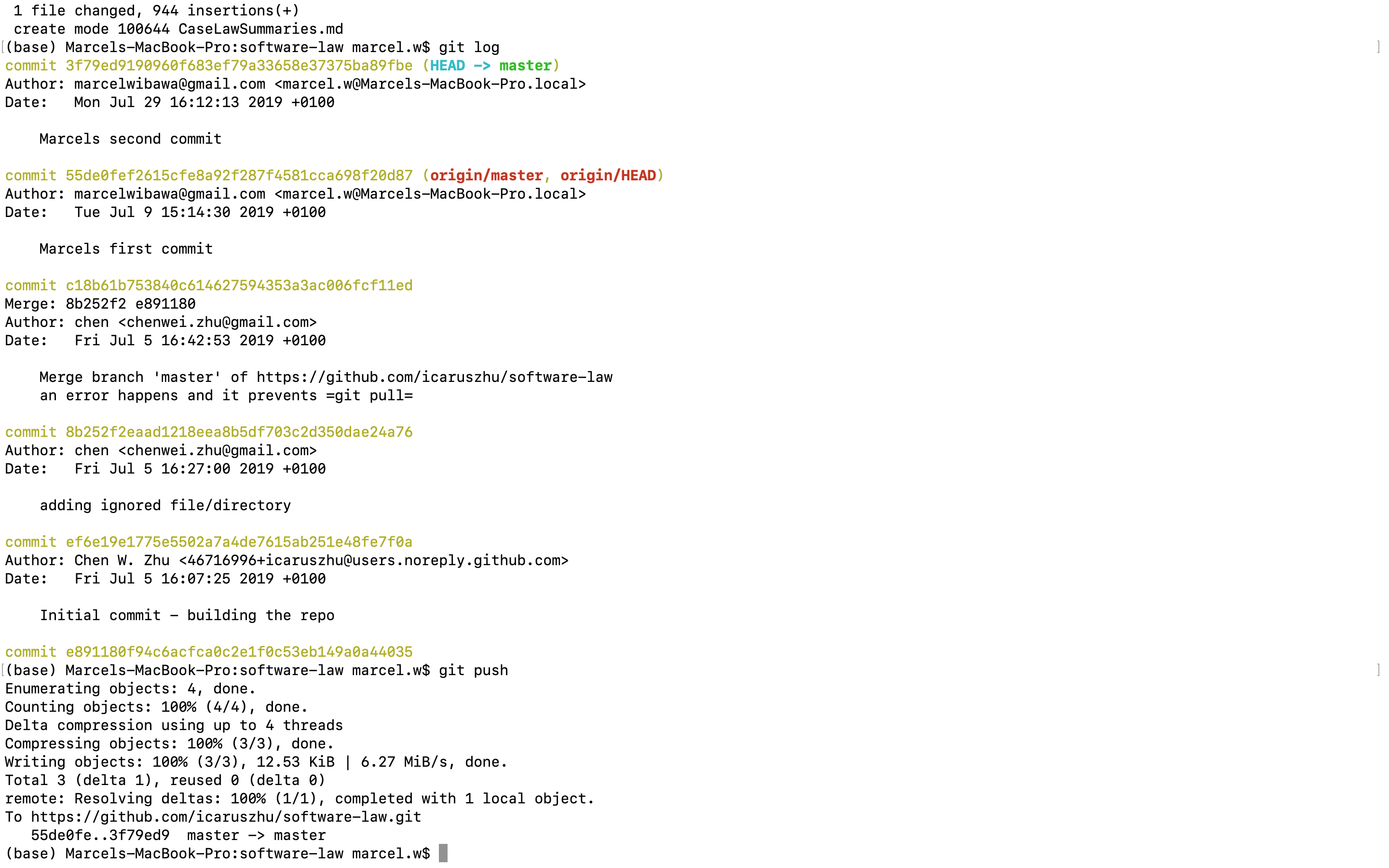by Marcel Wibawa
Going into the Undergraduate Research Scholarship programme this summer, I was keen on being able to research an area of law that was new and exciting to me alongside an academic who has a strong understanding of its relevant legal issues. Little did I know that I was going to benefit so much more by the end of it through the opportunities the research presented, such as being able to learn the version control tool called Git and integrating innovative methods of academic research into the final year of my law degree.
Before briefly explaining my work and reflections, I would like to start by adding relevant context. In 1976, a young Bill Gates wrote an open letter towards computer hobbyists expressing his frustration when the software he developed was being used by many while he was still being paid less than $2 per hour. In contrast to this in present day, thousands of people are freely contributing to the Linux kernel, a free and open source operating system adopted by Android for their smartphones and tablets. While I understand that monetary incentives might no longer be a concern for Bill Gates, it is more difficult to determine why this is the case for free and open source software (FOSS) programmers.

^Source: http://www.digibarn.com/collections/newsletters/homebrew/V2_01/gatesletter.html
My research project, led by Dr Chen Zhu, explored the area of software-related intellectual property. In particular, I focused on the phenomenon of FOSS licencing schemes and how they have challenged the current copyright regime in various jurisdictions. It became apparent that the intentions of modern-day FOSS programmers are very different compared to programmers in the past, and the courts have to take this into account when making decisions.
In undergoing this research, the action plan proposed was split into three parts: familiarisation, focused research, and structured output. The first two parts are essential when doing any academic research. For this particular project, it involved gaining an understanding of the historical context of copyright law. This was done through reading useful academic sources and supplementing that with recent software-related copyright cases from the United Kingdom, the European Union, and the United States.
As I had no prior programming experience or knowledge around intellectual property law, my first week was a dive into the unknown. I was fortunate enough to be able to attend a software carpentry workshop as part of the process, where I familiarised myself around the Unix Shell and learned the computer programming language Python. This pushed me to be open-minded in grasping new concepts in both computing and law.
The chance to carry out in-depth research in a contemporary legal issue alone made the five weeks worthwhile. However, my biggest takeaway was the creative method of academic research that Chen encouraged throughout. This included using markdown editors for note-taking and showing me a selected array of software packages present to organise my work. Furthermore, in the collaborative spirit of FOSS programmers, he instructed me to update all my research on GitHub, where he would be able to check and give feedback on my progress through our Git Repository. The spirit he showed towards legal research is something I will continue to strive towards during my studies and future career.

^ Learning how to version control my research findings by using Git during one of my meetings with Chen.
I thoroughly enjoyed my time taking part in this project and would recommend students in the College of Arts and Law to apply for a research scholarship if they want a challenging and intellectually stimulating opportunity over the summer that enhances their university experience.
